By Ray Mwareya
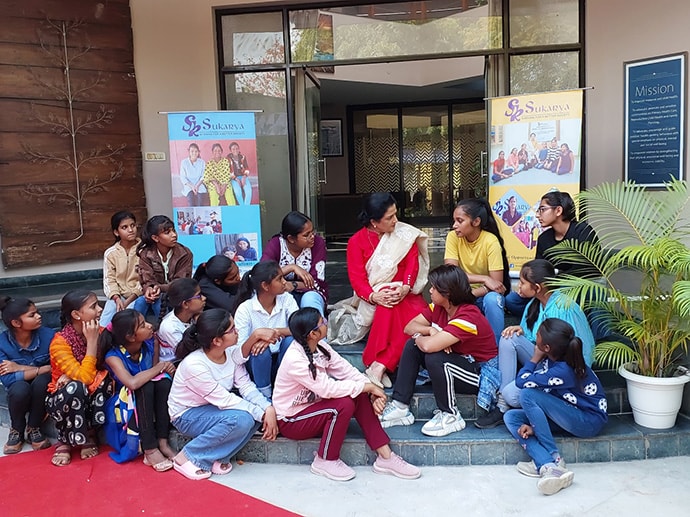
Meera speaking with girls participating in Sukarya’s programs. Photo: Sukarya
Meera Satpathy’s drive to improve the health, gender, and education circumstances for women and children in India began 28 years ago when she founded Sukarya – a non-profit headquartered in Gurugram, India.
“I am a proud and committed volunteer of ‘Sukarya’ the nonprofit,” she says, and explains that “Su” in India’s Sanskrit language means “good” or “pure.” “Karya” means “work.”
Therefore, “Sukarya” could be interpreted as “good work.”
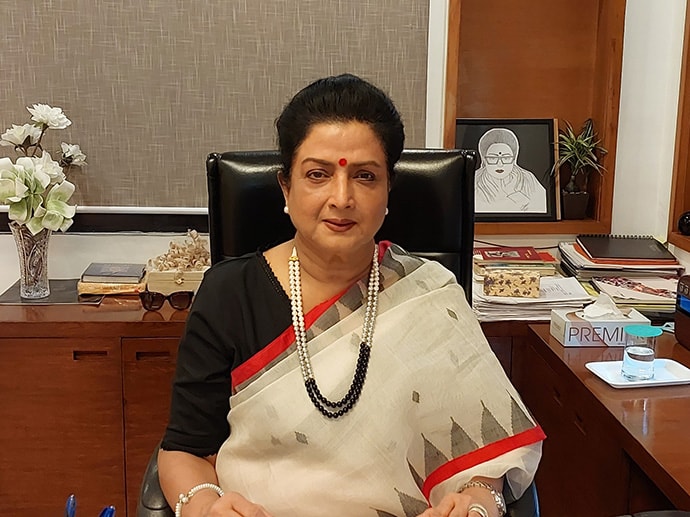
Meera Satpathy, Founder and Chairperson of Sukarya. Photo: Sukarya
Though fantastic progress has been made in the last two decades – the plight of women and children in India remain concerning when it comes to accessing opportunities that are easily available to men.
India, a prosperous country and the third largest economy in the world, still languishes low at number 140 in the world for the Gender Gap Index (GGI) among 156 countries polled by the World Economic Forum in 2021.
Despite progress in education and healthcare, the female labor force participation rate remains significantly lower than that of men.
Only 32.8% of female aged 15 years and above in India are participating in the labor workforce, as compared to 77.2% male, according to a Ministry of Labour and Employment statistics survey of April 2023.
This is due to a “patriarchal and male-dominated society like ours, women are involved in all kinds of household works and there is less participation in higher education and other decision-making roles,” Meera says.
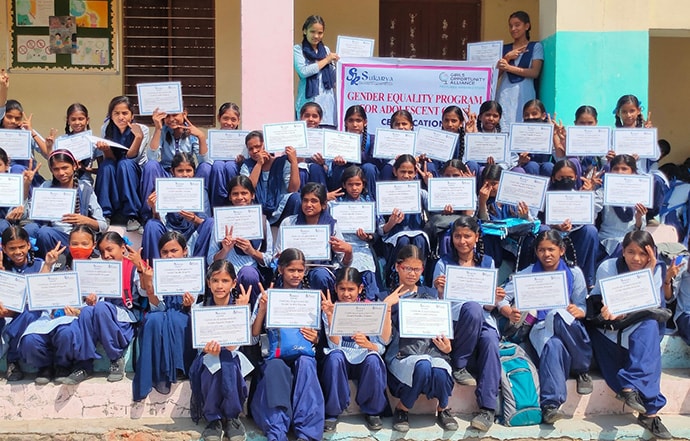
Graduates of Sukarya’s Gender Equality Program. Photo: Sukarya
Despite an economic boom underway, India is a fitting example of a country where the disparity between economic growth and social development is a jarring contrast.
Meera didn’t want to feel helpless and watch.
“Working more meaningfully for the underprivileged was my priority. That’s why I founded Sukarya,” she says.
When she was young, Mother Teressa’s selfless dedication to treating disease among the poor and homeless across India with compassion shaped her passion to do the same in her unique way.
Hence, the key to Sukarya’s work is the organization’s Gender Equality Programme. It works to provide basic knowledge and awareness to adolescent girls (10-19 years age group) on reproductive and sexual health and build their knowledge and skills on family life.
This priority is for a reason, says Meera.
“Educating girls about their bodies, rights, and health options empowers them to make informed decisions, promotes gender equality, and helps prevent issues like early pregnancy, sexually transmitted infections, and gender-based violence,” she says.
This foundational knowledge is essential for their overall development and enables them to lead healthier, confident adult lives ahead in the workforce, government, and family life.
The Gender Equality Program has made great strides, she says. For example, since its inception in 2017, the program has reached and empowered over 15,000 adolescent girls across Delhi, Haryana, and Rajasthan, making significant strides in addressing issues of adolescent, reproductive, and sexual health, as well as promoting family life and gender education.
To give a fuller impact, Sukarya has extended its work to educating girls with basic digital skills, enhancing their abilities and employability with a better understanding of gender discrimination, social stigma, issues, and challenges, and teaching them about the impact of water, sanitation, and hygiene (WASH) for maintaining good health.
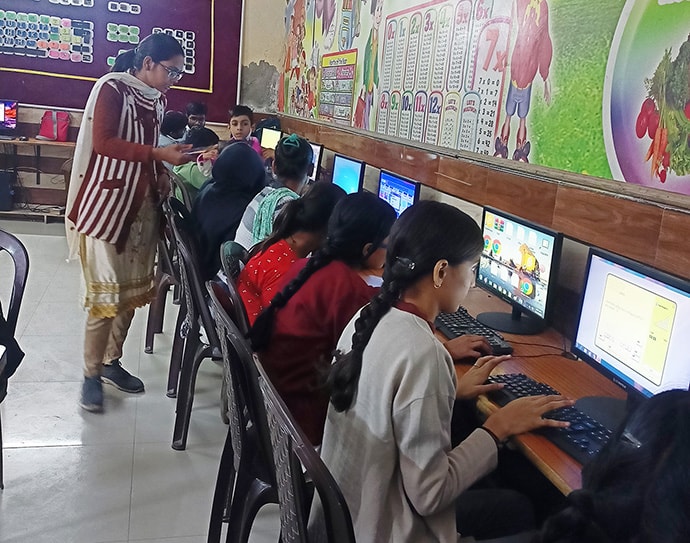
Sukarya’s Digital Skills program. Photo: Sukarya
“Digital skills open doors to information, resources, and opportunities, enhancing their employability and ability to advocate for themselves and their communities,” she says.
Meera understands the connection. While digital upskilling helps women navigate social challenges on and offline, the knowledge of WASH hygienic practices is crucial to protecting their health.
Sukarya is not a lone hero. It achieves bigger success by creating partnerships with other organizations and the government.
“These collaborations have intensified,” she says, and explains that complex issues require shared expertise and resources.
No gender progress in India can thrive unless young men too are on board to change their attitudes, especially on sensitive violations like rape. According to Statista, 31, 516 rapes were reported across India in 2022.
Until now, the focus has included adolescent girls, but recognizing the critical role of changing men’s attitudes towards decreasing gender crimes like rape, means Sukarya is readying plans to involve boys in the near future, promises Meera.
“They are equally important for the growth of the country and the stereotype has to be removed and it is absolutely crucial,” she says.
In the same vein, it could be hard to get the support of parents when Sukarya wants to engage young girls in sensitive empowerment initiatives like sexual and reproductive health.
“Cultural norms and taboos [exist] around these topics,” observes Meera.
However, through awareness programs and community engagement with the help of lead girls, Sukarya emphasizes the importance of education and health. When educated girls shine in the job and government sector, parents are persuaded to support essential initiatives like Sukarya’s.
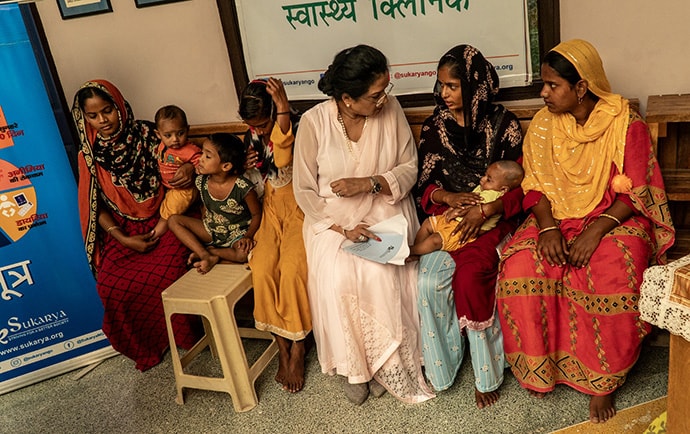
Meera with young mothers in the Sukarya health clinic. Photo: Joel Meyers
This is also where Sukarya’s many long-time loyal volunteers – who serve with dedication – make community engagement easier.
India is a huge country geographically. Is it realistic for Sukarya to cover such an expansive country or do better results occur from restricting itself to one city/state?
Achieving better results often comes from focusing efforts on specific cities, districts, and states, Meera emphasizes.
“This allows for more targeted interventions, deeper community engagement, and a greater understanding of local needs,” and outcomes that can become models for other regions of India.
There are thousands of non-profits working with women and children across India. From South Africa to Iraq and even the US, there’s always the uncomfortable reality of the same intervention being duplicated multiple times in one place.
“Sukarya’s Gender Equality Program distinguishes itself through a holistic and transformative approach that transcends traditional education,” says Meera.
By addressing the critical issues of orthodoxy, illiteracy, and ignorance, the program empowers girls not just as beneficiaries but as agents of change within their communities.
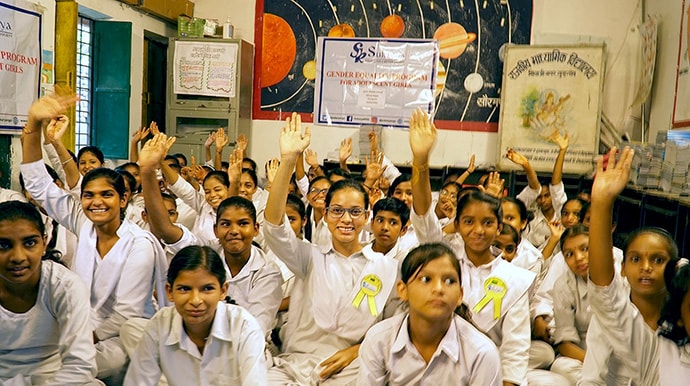
Gender and leader training. Photo: Joel Meyers
She praises the program as unique in its certification process, recognizing participants’ commitment and personal growth, and its “Lead Girls” initiative, which “fosters leadership and community mobilization.”
Sukarya recently celebrated its 25th anniversary. Meera reflected on a changing India.
The Periodic Labour Force Survey Report 2022-23 released by the Ministry of Statistics in India shows Female Labour Force Participation Rate in the country has improved significantly by 4.2 percentage points to 37.0% in 2023.
“Over the past 25 years, India has seen significant progress in gender equity, marked by legal reforms to protect women’s rights, improvements in female literacy and education, and increased political representation of women,” she says.
However, challenges remain with fluctuating female workforce participation, persistent social norms, and economic disparities.
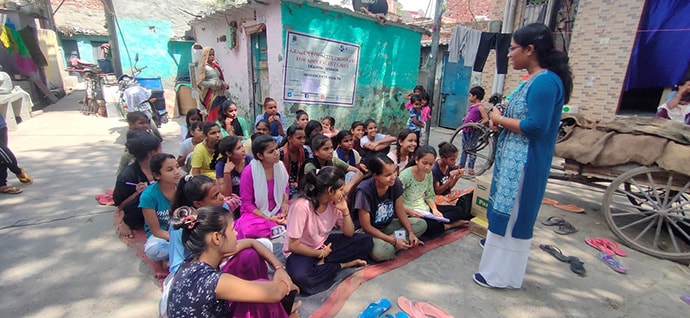
Gender equality training in a local village. Photo: Sukarya
The global political, social, and financial conditions and how India fits in them worries Meera.
“My most significant concern regarding current global and Indian events is the deepening inequality and the impact of climate change,” she says.
Climate change exacerbates vulnerabilities, affecting the most marginalized communities, particularly in India, where a large population depends on climate-sensitive sectors like agriculture, she says.
Worryingly, India’s drought-prone area has increased by 57 percent since 1997, The World Bank warned in 2023.
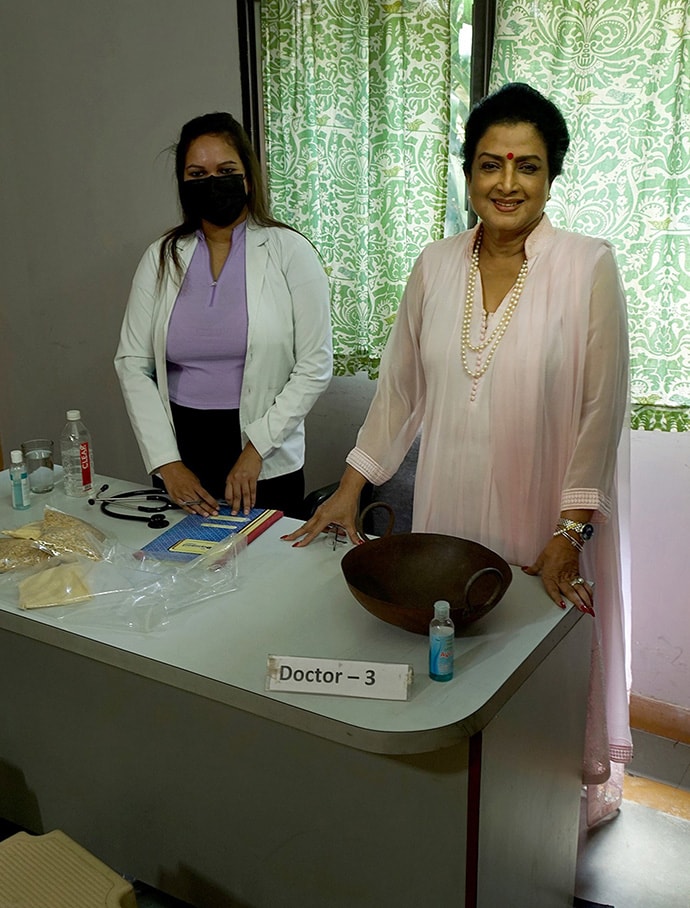
Meera with doctor at a Sukarya health clinic. Photo: Joel Meyers
In the end, Meera feels most hopeful about the potential for technological innovation and global collaboration to address critical challenges such as climate change, health crises, and inequality.
“The rapid advancements in renewable energy, digital education, and healthcare technology, coupled with an increasing global awareness and commitment to sustainable development present unprecedented opportunities for positive change,” she says.
Models of a more connected, resilient, and equitable world can be quickly, cheaply, and effectively shared for global benefit.